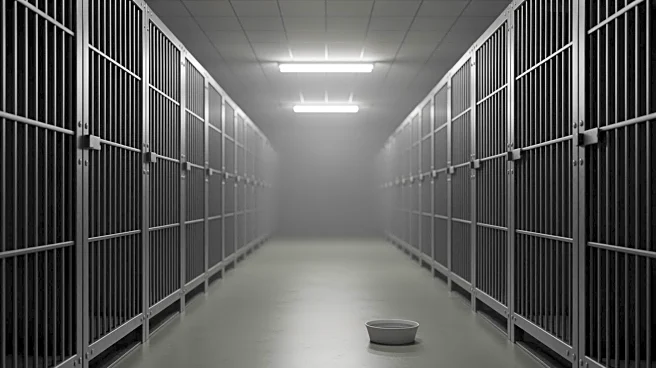What's Happening?
Sir Jim Ratcliffe, CEO of Ineos, has called for urgent political intervention to save the European chemical industry, which he claims is at a critical tipping point. Ratcliffe highlighted the need for Europe to align its energy and CO2 taxes with global standards and reconsider unilateral tariffs. The chemical industry, a major economic sector in Europe, is facing significant challenges, with production declines reported in the UK, Germany, and France. Ineos has already closed several plants across Europe, including in the UK, Belgium, Germany, France, and Spain, and plans further closures. Ratcliffe warns that without immediate action, the industry could face devastating consequences, including job losses and increased dependency on imports for essential goods.
Why It's Important?
The European chemical industry is a vital component of the continent's economy, valued at €700 billion and employing 5 million people. Its decline could lead to significant economic and security risks, as Europe might become reliant on imports for critical goods in sectors like water treatment, transportation, health, medicine, and defense. The industry's health is crucial for the production of a wide range of manufactured products, from medicines to technology. Ratcliffe's call to action underscores the urgency of addressing these challenges to prevent long-term economic and strategic vulnerabilities.
What's Next?
If European politicians heed Ratcliffe's call, potential measures could include tax reforms and tariff adjustments to bolster the chemical industry's competitiveness. However, if these interventions are delayed or ineffective, the industry may continue to shrink, leading to further plant closures and job losses. The situation demands swift and decisive action to prevent the erosion of a key economic sector and safeguard Europe's strategic interests.
Beyond the Headlines
The decline of the chemical industry in Europe could have broader implications, including shifts in global trade dynamics and increased competition from regions with more favorable economic conditions. The industry's challenges also highlight the need for sustainable practices and innovation to adapt to changing environmental and regulatory landscapes.









